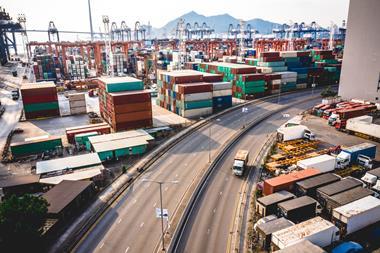Businesses need a better understanding of multi-tier supply chains to limit the impact of disruption
Businesses should develop a better understanding of the make-up of critical multi-tier supply chains so they can limit the impact of disruption, according to a report from Chubb.
The Spectre of Disruption is a two-part series focusing on present and emerging supply chain risks. It analyses the current international supply chain risk landscape and considers some of the main issues impacting businesses around the world.
In recent years, man-made and natural disasters, together with geopolitical events, such as Brexit, COVID-19, the Russia-Ukraine war, rising inflation and the risk of a global recession, have caused businesses to experience unprecedented disruption to just-in-time (JIT) supply chain models.
This includes mass labour and goods shortages, container costs, energy access, and other local factors such as workforce strikes and port congestion.
Peter Kelderman, Marine Risk Management Leader, Chubb Europe and co-author of the report said: “The past few years have taught us that robust risk management and business resilience strategies are critical to future-proofing supply chains.
“This report series demonstrates how important it is for global businesses to have an understanding of the developing exposures across their supply chains and to be equipped with the right strategies and support to reduce their exposure to business interruption.”
The first report in the series examines the developing trends, causes and effects and what they mean for business in the UK and globally.
The second report explores how organisations can build resilience in their supply chains through robust risk mitigation, including strategies to enable risk and supply chain managers to prepare for the unknown, develop risk management capabilities and build operational strength.




















No comments yet